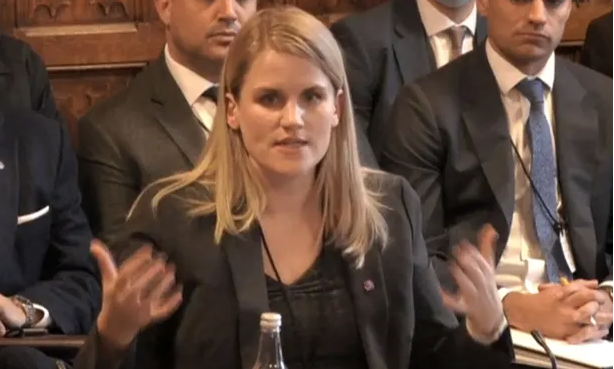CommentsDAMAGING REVELATIONS - Facebook has been at the centre of a wave of damaging revelations after a whistleblower released tens of thousands of internal documents and testified about the company’s inner workings to US senators.
Frances Haugen left Facebook in May with a cache of memos and research that have exposed the inner workings of the company and the impact its platforms have on users. The first stories based on those documents were published by the Wall Street Journal in September.
Haugen gave further evidence about Facebook’s failure to act on harmful content in testimony to US senators on 5 October, in which she accused the company of putting “astronomical profits before people”. She also testified to MPs and peers in the UK on Monday, as a fresh wave of stories based on the documents was published by a consortium of news organisations.
Facebook’s products – the eponymous platform, the Instagram photo-sharing app, Facebook Messenger and the WhatsApp messaging service – are used by 2.8 billion people a day and the company generated a net income – a US measure of profit – of $29bn (£21bn) last year.
Here is what we have learned from the documents, and Haugen, since the revelations first broke last month.
Teenage mental health
The most damaging revelations focused on Instagram’s impact on the mental health and wellbeing of teenage girls. One piece of internal research showed that for teenage girls already having “hard moments”, one in three found Instagram made body issues worse. A further slide shows that one in three people who were finding social media use problematic found Instagram made it worse, with one in four saying it made issues with social comparison worse.
Facebook described reports on the research, by the WSJ in September, as a “mischaracterisation” of its internal work. Nonetheless, the Instagram research has galvanised politicians on both sides of the Atlantic seeking to rein in Facebook.
Violence in developing countries
Haugen has warned that Facebook is fanning ethnic violence in countries including Ethiopia and is not doing enough to stop it. She said that 87% of the spending on combating misinformation at Facebook is spent on English content when only 9% of users are English speakers. According to the news site Politico on Monday, just 6% of Arabic-language hate content was detected on Instagram before it made its way on to the platform.
Haugen told Congress on 5 October that Facebook’s use of engagement-based ranking – where the platform ranks a piece of content, and whether to put it in front of users, on the amount of interactions it gets off people – was endangering lives. “Facebook … knows, they have admitted in public, that engagement-based ranking is dangerous without integrity and security systems, but then not rolled out those integrity and security systems to most of the languages in the world. And that’s what is causing things like ethnic violence in Ethiopia,” she said.
Divisive algorithm changes
In 2018 Facebook changed the way it tailored content for users of its news feed feature, a key part of people’s experience of the platform. The emphasis on boosting “meaningful social interactions” between friends and family meant that the feed leant towards reshared material, which was often misinformed and toxic. “Misinformation, toxicity and violent content are inordinately prevalent among reshares,” said internal research. Facebook said it had an integrity team that was tackling the problematic content “as efficiently as possible”.
Tackling falsehoods about the US presidential election
The New York Times reported that internal research showed how, at one point after the US presidential election last year, 10% of all US views of political material on Facebook – a very high proportion for the platform – were of posts alleging that Joe Biden’s victory was fraudulent. One internal review criticised attempts to tackle “Stop the Steal” groups spreading claims that the election was rigged. “Enforcement was piecemeal,” said the research. The revelations have reignited concerns about Facebook’s role in the 6 January riots.
Facebook said: “The responsibility for the violence that occurred … lies with those who attacked our Capitol and those who encouraged them.” However, the WSJ has also reported that Facebook’s automated systems were taking down posts generating only an estimated 3-5% of total views of hate speech.
Within the files disclosed by Haugen are testimonies from dozens of Facebook employees frustrated by the company’s failure to either acknowledge the harms it generates, or to properly support efforts to mitigate or prevent those harms. “We are FB, not some naive startup. With the unprecedented resources we have, we should do better,” wrote one employee quoted by Politico in the wake of the 6 January attack on the US capitol.
“Never forget the day Trump rode down the escalator in 2015, called for a ban on Muslims entering the US, we determined that it violated our policies, and yet we explicitly overrode the policy and didn’t take the video down,” wrote another. “There is a straight line that can be drawn from that day to today, one of the darkest days in the history of democracy … History will not judge us kindly.”
(Dan Milmo is the Guardian's global technology editor.)
